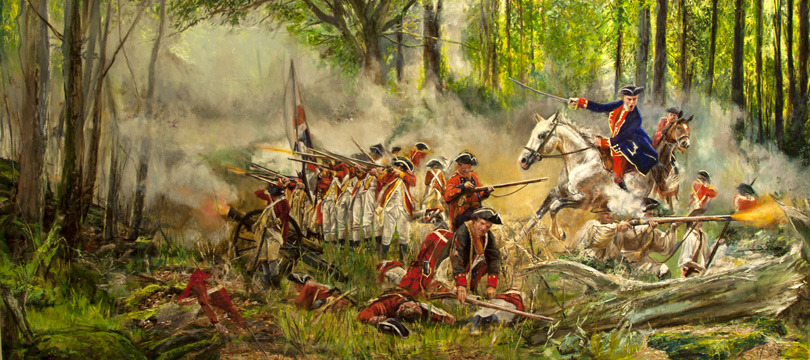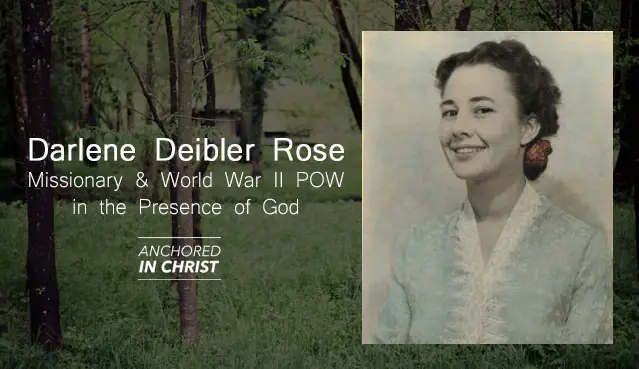
Prior to the American
Revolution, George Washington gained notoriety by fighting for the British
crown in the French and Indian Wars. In 1755 at the ill-fated battle of Monongahela
(near present-day Pittsburg), Washington exhibited remarkable courage and
leadership when the British were ambushed by French soldiers and Native
American braves.
History records that
Washington emerged from that hellacious battle miraculously unscathed. His coat
and hat were riddled with bullet holes and two horses were shot from beneath him.[1]
When the smoke cleared, the
Indians were perplexed at Washington’s survival. Many claimed that he had been
cloaked by the Great Spirit. Chief Red Hawk of the Shawnee claimed to have
personally shot at Washington eleven times, but all bullets missed. Another
chief, amazed at Washington’s grit, is said to have predicted, “He will become
the chief of nations, and a people yet unborn will hail him as the father of a
mighty empire.”
Shortly after the fight, Washington
wrote from Fort Cumberland to his younger brother, John on July 18, 1755 saying:
“By the All-Powerful Dispensations of Providence, I have been protected beyond
all human probability or expectation; I had four bullets through my coat, and
two horses shot under me, yet escaped unhurt, although death was leveling my
companions on every side of me!”
Washington’s heroics
created a sensation in the Colonies, and many felt God’s hand was on him for a
special purpose. That opinion was expressed in a famous sermon preached in
Virginia on August 17, 1755 by an evangelist named Samuel Davies. In a sermon he
entitled, “Religion and Patriotism,” Davies preached to a crowd from 2 Samuel 10:12
which says, “Be of good courage, and let us be strong for our people and for
the cities of our God.” Davies’ sermon focused on the sovereignty of God and in
his manuscript he made a comment about Washington saying, “I may point out to
the public that heroic youth, Colonel Washington, whom I cannot hope Providence
has hitherto preserved for some important service to his country.”[2]
That dear preacher did not
understand how prophetic his words were! The more I study the American
Revolution the more I am convinced that God’s invisible hand was at work in the
background. This is just one of many stories that I have read about where circumstances
unexplainably aligned in favor of the Americans. In his 1982 Thanksgiving
Proclamation, President Ronald Reagan wrote, “I have always believed that this
anointed land was set apart in an uncommon way, that a divine plan placed this
great continent here between the oceans to be found by people from every corner
of the earth who had a special love of faith and freedom.”[3]
With the exception of Israel, we know that America, more
than any nation ever before, was started on Christian principles. And its also
true that the Bible declares God’s sovereignty over the rise and fall of
nations. Daniel 2:21 reads, “He changes times and seasons; he removes kings and
sets up kings,” while Psalm 22:28 reminds us, “For the kingdom is the Lord’s and
He rules over the nations” (see also Job 12:23; Ps. 46:8-10; Pro. 21:1; Is.
41:2; Acts 17:26). God has a secret, sovereign plan for this nation. While I am
a citizen of America by birth, I am a citizen of New Jerusalem by second birth.
I pledge allegiance to the ideals of America, but I kneel before the King of
Kings and Lord of Lords—Jesus Christ. One day this nation will be a footnote in
history, but Jesus’ kingdom will live forever! Let’s not forget that! -DM
[1]
Eric Metaxas, 7 Men and The Secrets of their Greatness (Nashville, TN:
Thomas Nelson, 2013), 10.
[2]
Robert J. Morgan, 100 Bible Verses that Made America (Nashville, TN:
Thomas Nelson, 2020, 53-55.
[3] “President’s
Proclamation,” New York Times, 21 November 1982 <https://www.nytimes.com/1982/11/21/us/president-s-proclamation.html>





